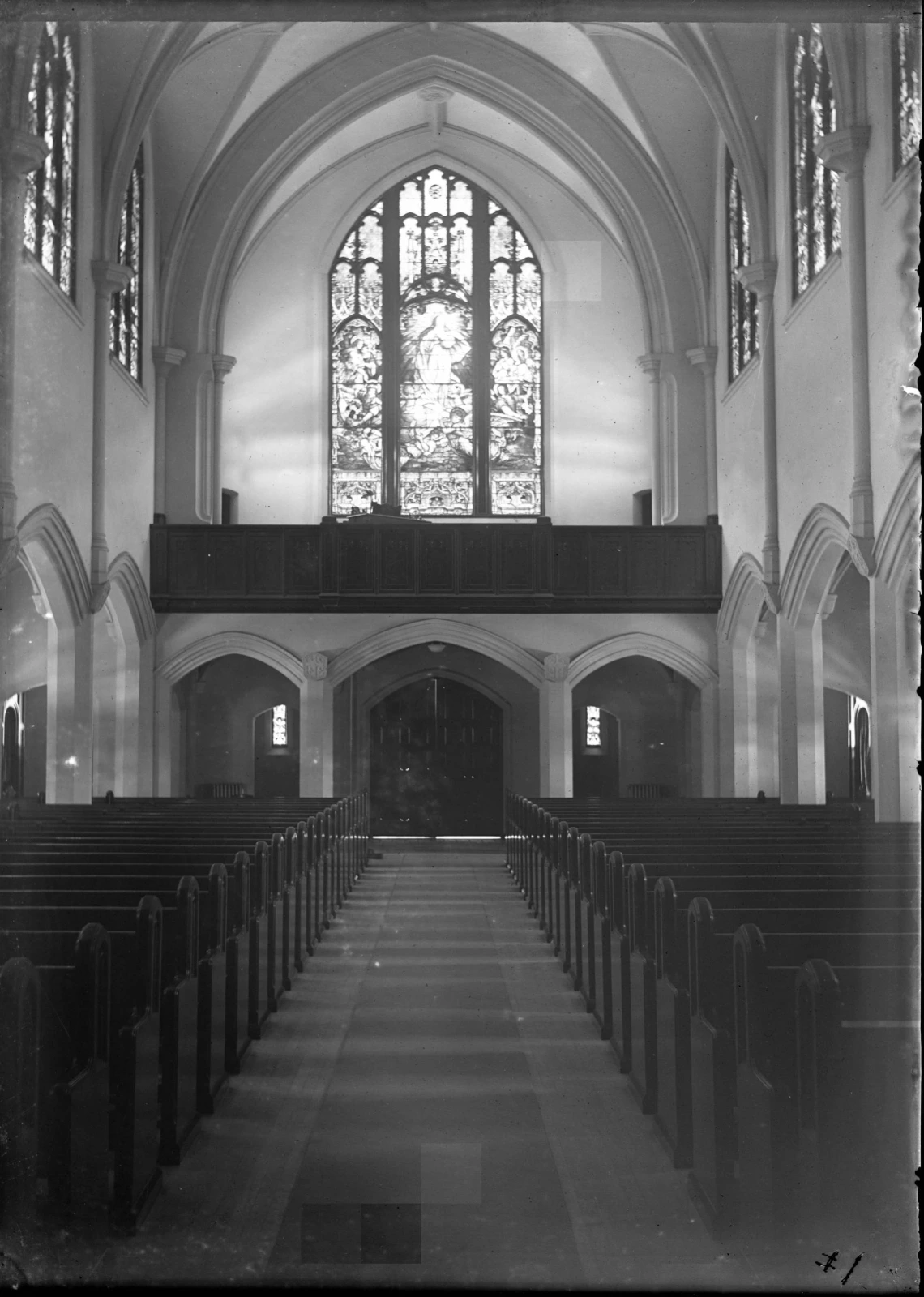John Franks Bisbee Catholic Church glass plates

Interior image of the nave and narthex of St. Patrick's Roman Catholic Church in Bisbee, AZ; circa 1917.
Collection area: Arizona and Southwest
Collection dates: circa 1917
This collection contains 10 glass plate negatives of St. Patrick's Roman Catholic Church in Bisbee, Arizona. The photographs were taken circa 1917, after St. Patrick Church was consecrated, by resident John Franks.
John B. Franks was born in Kansas in 1872 and later found himself living in Bisbee, Arizona. He was the Bisbee Mine safety officer and was a hobby photographer. He and his wife, Mary, had six children: Paul, Anna May, Isabel, Earl, Frances, and Bill. He passed away in Bisbee, Arizona on July 25, 1946. His widow, Mary, was born in Texas in 1881 and passed away in Bisbee, Arizona on September 15, 1962.
The early 1900s brought hundreds to the Copper Queen Mine in Bisbee, Arizona. The first Catholic church in the area was a small cabin that soon grew too small to hold its parishoners. Over the years, an adobe home and a schoolhouse would be used for religious purposes, but each time the town grew the church became too small. By 1891, a frame building at School Hill on Clawson Avenue was erected and was soon being called "St. Pat's" -- St. Patrick is the patron saint of Ireland, and many of the residents of Bisbee at the time were from Irish and Welsh descent. By 1913, Father Constant Mandlin had arrived in Bisbee and realized the church was still too small to hold all of those attending masses. Thomas Higgins, a mine owner, was asked to donate a small patch of land for a new building and church, which he did. The area waws called Higgins Hill.
Architect Albert C. Martin drew designs for a $150,000 church. On Labor Day, 1915, parishoners began excavating and St. Patrick Catholic Church was consecrated by Rev. Henry Granjon on September 30, 1917.
A collection guide explains what's in a collection. New to using our collections? Learn how to use a collection guide.
Collection guideThe collection has materials you can access online.
Access this collection
Visit us in person to access materials from this collection. Our materials are one-of-a-kind and require special care, so they can’t be checked out or taken home.
How to cite
Learn how to cite and use materials from Special Collections in your research.
